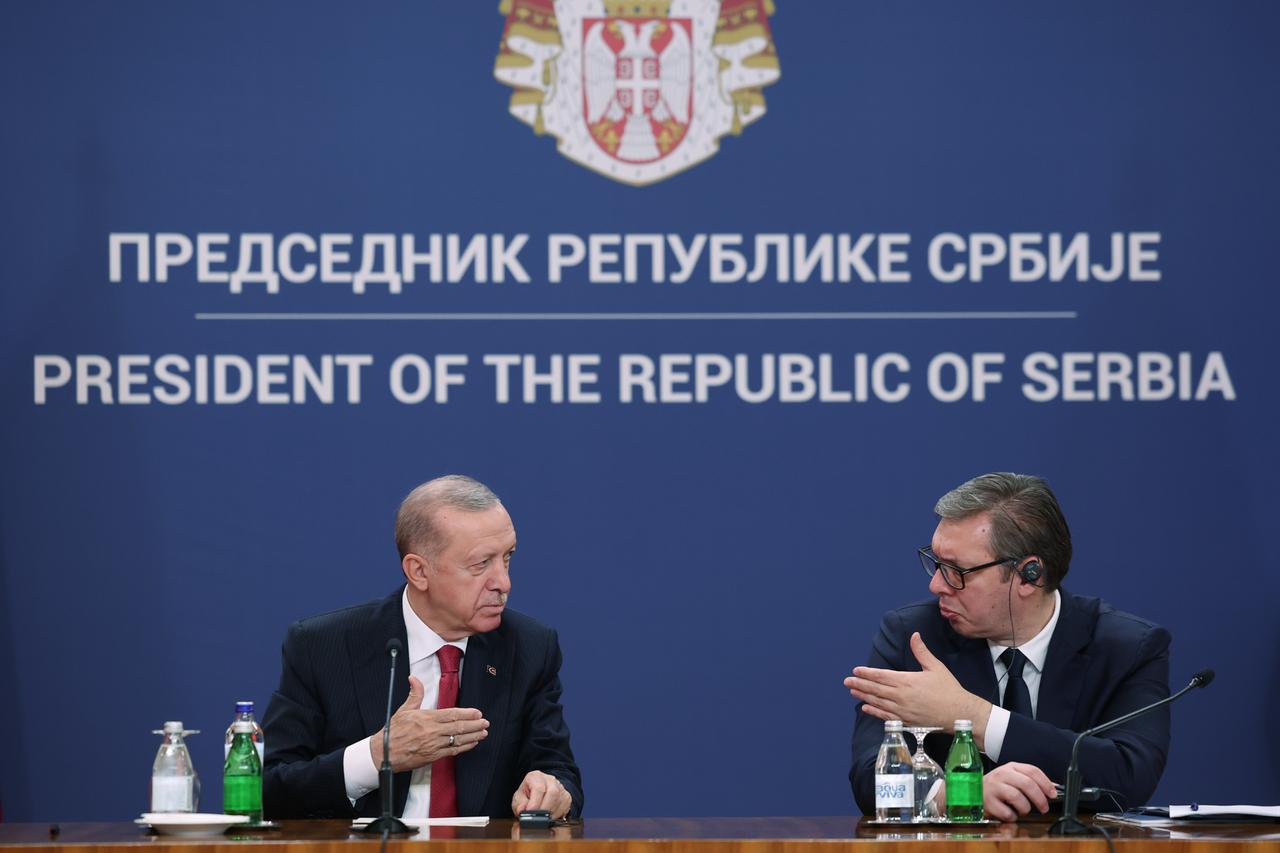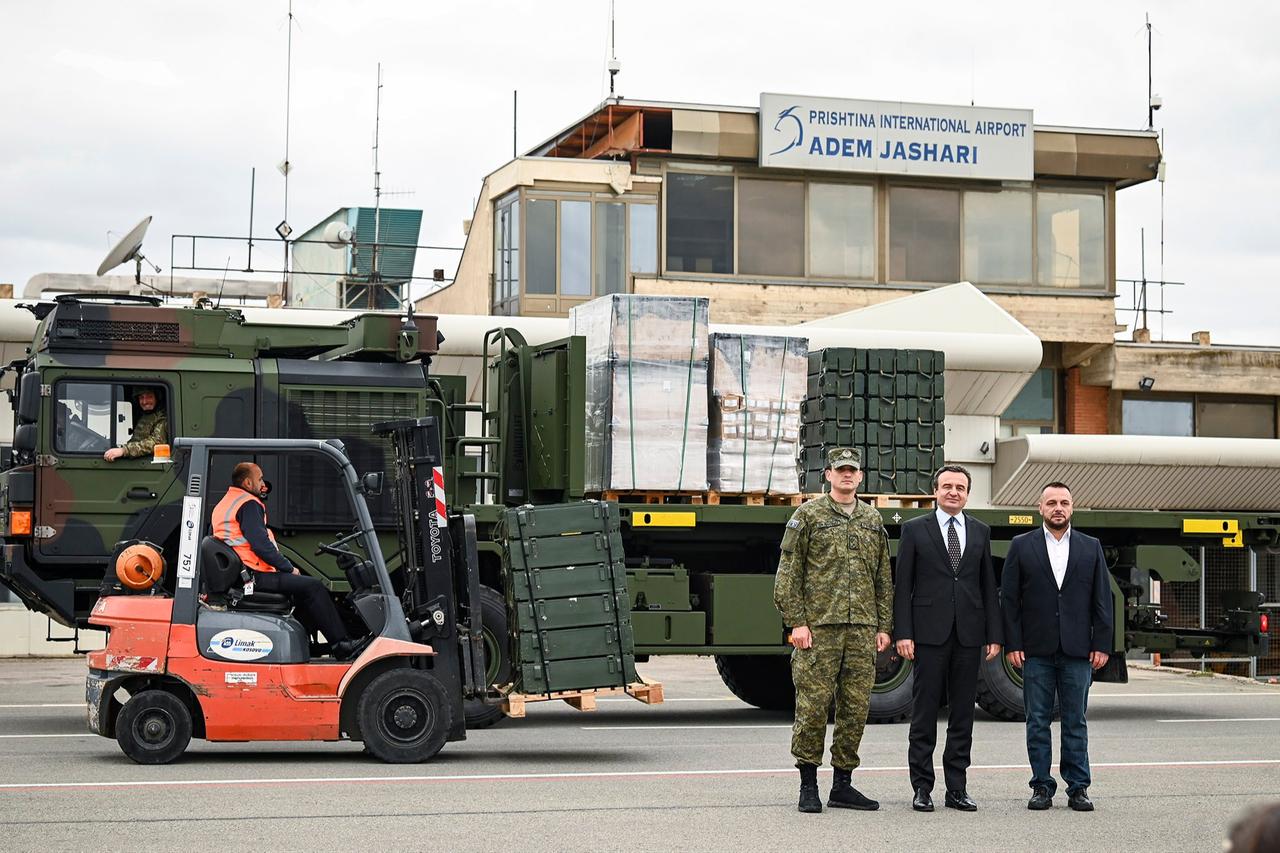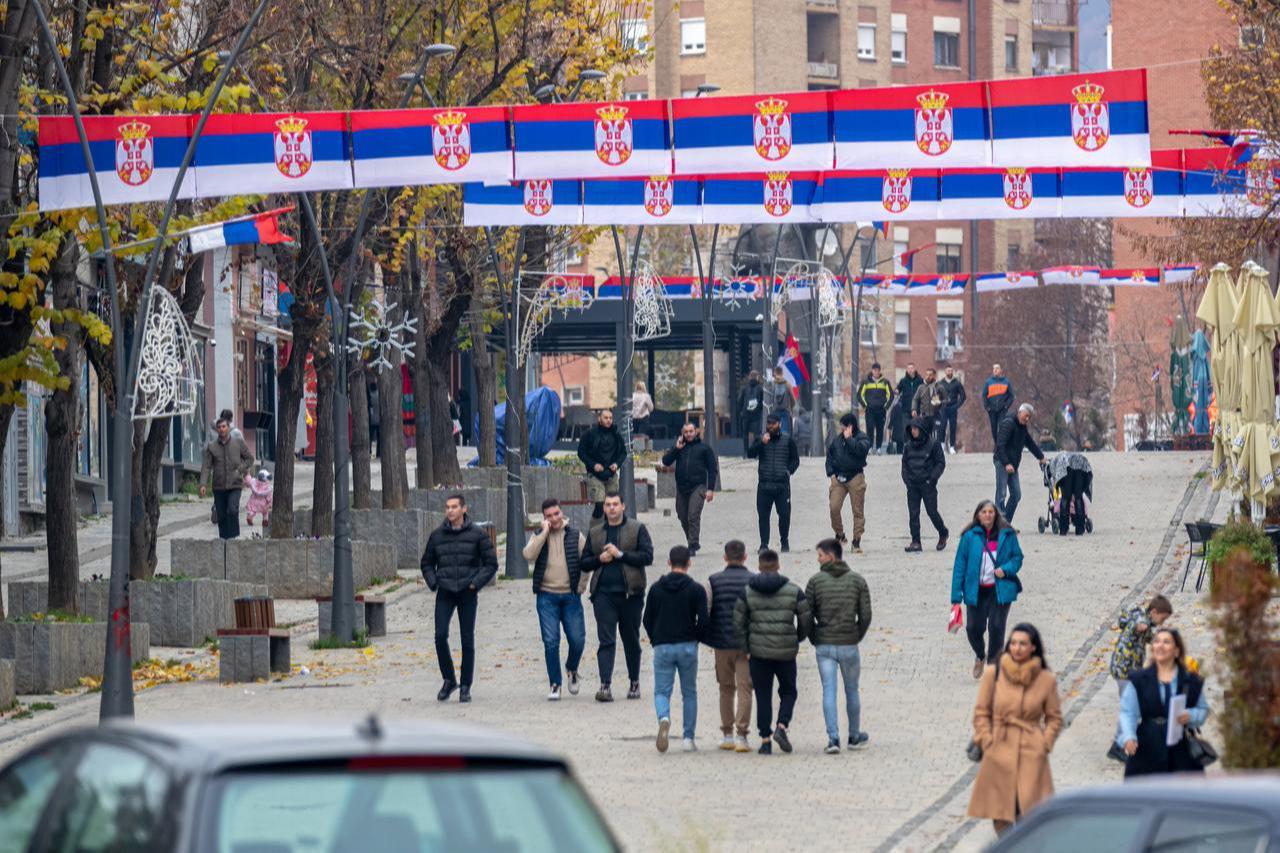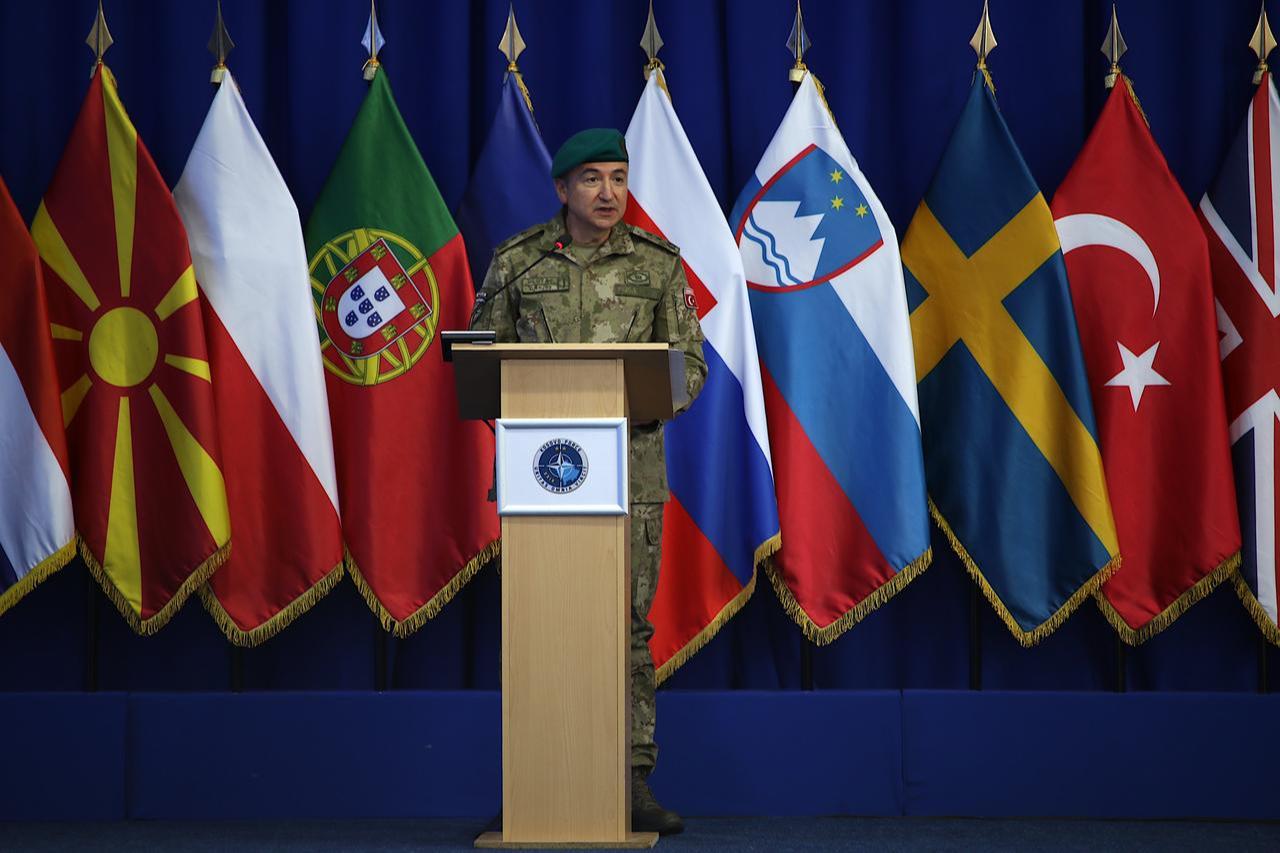
The arrival of a potent new defense system in the Balkans on Wednesday has done more than just strengthen the capabilities of the Kosovo Security Force (KSF); it has sent a sharp political tremor through Ankara's painstakingly cultivated regional diplomacy.
Containers carrying thousands of advanced, Turkish-made Skydagger kamikaze drones arrived on Wednesday, marking an early delivery under a contract with defense giant Baykar.
While Kosovar Prime Minister Albin Kurti celebrated the acquisition as a step toward building a "modern and contemporary force," the news drew an immediate and furious backlash from Belgrade, forcing Ankara to perform one of its most delicate high-wire acts yet.
Kosovo declared independence from Serbia in 2008, and it is recognized by some 119 countries worldwide, including Türkiye.
However, Serbia still considers Kosovo part of its territory. The military strengthening of the KSF is thus viewed in Belgrade not as modernization but as a direct assault on its constitutional claims.
This tension is physically manifest in the north, where areas of northern Kosovo, near the border with Serbia, tend to have large ethnic Serb populations, making any increase in Pristina's military capacity an immediate flashpoint.

Serbian President Aleksandar Vucic wasted no time in unleashing an explosive critique, accusing Türkiye of violating international law and actively destabilizing the Western Balkans.
"I am appalled by Türkiye's behavior and the brutal violation of the U.N. Charter and U.N. Security Council Resolution 1244, as well as the continued arming of the authorities in Pristina,” Vucic wrote on social media.
Crucially, he added a line that goes beyond routine diplomatic sparring, invoking a familiar historical flashpoint: "It is now completely clear that Türkiye does not want stability in the Western Balkans and is once again dreaming of restoring the Ottoman Empire. Serbia is a small country, but we understand its real intentions."
The "neo-Ottoman" charge is a rhetorical hand grenade often deployed in the Balkans when national interests collide with Ankara’s deepening engagement.
It is a predictable tactic that deflects attention from the more pragmatic realities of Türkiye's foreign policy—a policy that, despite the current friction, has yielded what many analysts had recently dubbed a "golden age" of economic ties with Serbia.

President Vucic’s outburst also stands in stark contrast to his own government’s efforts to modernize its arsenal, including deepening military relations with actors increasingly at odds with the West—namely, Russia and China. Just in July, the Serbian military special operations brigade had completed joint training with a Chinese brigade in China despite strong objections from the EU and the United States.
This posture exposes a clear double standard: Belgrade reserves the right to military strength but denies it to its neighbors, especially Kosovo, which it still considers a territory.
Kosovar President Vjosa Osmani was quick to defend Ankara, calling Vucic's statements "shameful" and framing Türkiye as a committed NATO ally.
"I am proud to have worked closely with President Erdogan, a man of his word, who has always shown deep and genuine care for all the people of our region and has given an outstanding contribution to maintaining stability, safety and security," Osmani stated, emphasizing that Türkiye is a "major NATO country that helps maintain peace."
"Vucic, meanwhile, seems to believe that he can threaten a big NATO country like Türkiye the same way he threatens neighboring countries. Instead of working closely with NATO member states, he pushes forward defense cooperation with Russia, China and Iran," she added.
As of yet, there has been no official high-level comment from Ankara on Vucic's accusations.
It is worth mentioning that this transaction is not a departure from the stability agenda; it is merely the recognition of the geopolitical reality. Türkiye is a NATO member, and Kosovo is a partner seeking Euro-Atlantic integration, a path Türkiye officially supports.

Meanwhile, this follows the recent rotation of leadership within NATO’s security mission in Kosovo.
Just days ago, Maj. Gen. Ozkan Ulutas of the Turkish Armed Forces assumed command of the NATO Kosovo Force (KFOR) for the second time in recent years.
Türkiye holds one of the largest troop contingents in KFOR, which operates under U.N. Security Council Resolution 1244, the very resolution Serbia claims the drone delivery violates.
The presence of a Turkish general at the helm of the mission tasked with ensuring security for all communities in Kosovo underscores Ankara's central, non-partisan commitment to regional stability. Indeed, the Serbian military’s Chief of General Staff was reportedly in urgent telephone contact with the Turkish KFOR Commander Ulutas to protest the drone delivery.
Consequently, this unique security role allows Ankara to deflect the "destabilizing" accusations. How can a nation actively commanding the primary NATO peacekeeping force in the region be simultaneously accused of seeking instability and a "revival of the Ottoman Empire"?
This diplomatic dust-up is not taking place in a vacuum. It comes just days before Kosovo’s crucial local elections on Oct. 12, a contest where ethnic tensions often rise and the integration of Serb-majority municipalities is a constant point of friction.
For President Vucic, the controversy is a powerful diversion. Internally, he faces significant, months-long anti-corruption and anti-government protests that have spread across the country, fueled by public anger over negligence and the abuse of power. By manufacturing a high-stakes crisis and deploying nationalist rhetoric against a major NATO power, Vucic successfully redirects public attention away from his own domestic challenges and toward a convenient external enemy.
For Türkiye, the message is clear: maintaining strong economic ties with Belgrade remains a priority, but it will not come at the expense of its long-term strategic and defense commitments to Kosovo.
Ankara’s role is not to choose between the two; it is to engage with both, betting that pragmatic cooperation and security partnership, even when it involves drones, is the only sustainable path to stability in a historically volatile region.